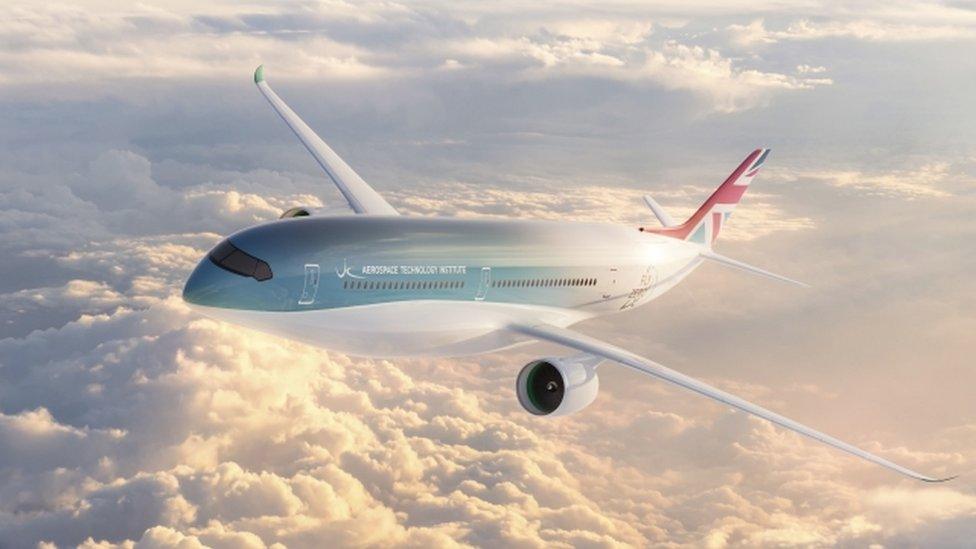Hydrogen plan for zero carbon plane developed by Cranfield-based organisation
- Published

A liquid hydrogen-powered plane is being developed in an attempt to operate non-stop-zero carbon transatlantic flights
A plane is being developed in a bid to operate non-stop zero-carbon flights across the Atlantic.
The liquid hydrogen-powered aircraft is being created through the government-backed FlyZero project, led by the Aerospace Technology Institute (ATI), in Cranfield, Bedfordshire.
It is designed to carry 279 passengers at "the same speed and comfort as today's airliners", the ATI said.
The FlyZero project director has called it a "new dawn for aviation".
The aircraft is being developed by aviation experts from across the UK as part of the £15m FlyZero initiative launched by the government in July 2020, with the aim of assessing the technical and commercial viability of a zero-carbon emission aircraft design.
Lightweight fuel
It is hoped the plane could fly from London to San Francisco without stopping, or from London to New Zealand with one refuelling stop.
The AIT said liquid hydrogen was a lightweight fuel which had three times the energy of kerosene and emitted no CO2 when burned. The only waste product from using it as fuel is water.
It would be stored in cryogenic tanks at about -250C (-418F) in the rear of the fuselage and two smaller tanks along the forward fuselage, with the latter also keeping the aircraft balanced as fuel burns off.
Project director Chris Gear said it was a "truly revolutionary vision" as the world focussed on tackling climate change.
"This new dawn for aviation brings with it real opportunities for the UK aerospace sector to secure market share, highly skilled jobs and inward investment, while helping to meet the UK's commitments to fight climate change," he said.
The designs have been unveiled ahead of the fourth meeting of the Jet Zero Council,, external in which ministers and aviation leaders aim to reduce the sector's carbon emissions.
Business Secretary Kwasi Kwarteng said it could "define the future of aerospace and aviation".
"By working with industry, we are showing that truly carbon-free flight could be possible, with hydrogen a front runner to replace conventional fossil fuels," he said.
"Fuelling planes sustainably will enable the public to travel as we do now, but in a way that doesn't damage the planet."

Find BBC News: East of England on Facebook, external, Instagram, external and Twitter, external. If you have a story suggestion email eastofenglandnews@bbc.co.uk